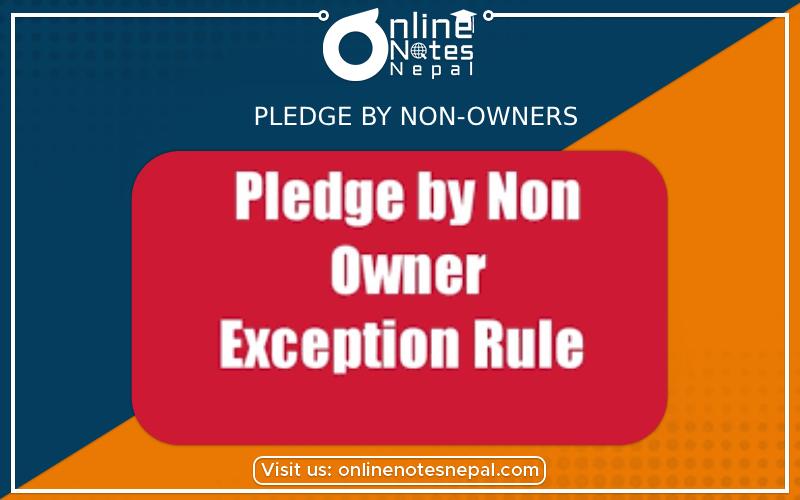Published by: Anu Poudeli
Published date: 03 Aug 2023

A "pledge by non-owners" is a circumstance in which someone who does not own an item or property pledges it as security for a loan or obligation. In other words, a person who is not the rightful owner of the asset pledges to use it as security to guarantee loan payback or obligation fulfillment. This structure can be seen in a variety of circumstances, including corporate finance, personal loans, and other financial transactions.
Here's some information about the concept of non-owner pledges:
1.Pledge and Collateral: A "pledge" is the act of offering an asset as collateral to secure a debt or loan in a financial transaction. Collateral is a valuable asset that can be claimed by the lender if the borrower fails to repay the loan. Traditionally, the borrower owns the asset pledged, however in some situations, non-owners may also submit assets as security.
2.Third-party Collateral: In rare situations, third parties, such as family members, friends, or business partners, may offer their assets as collateral to back up someone else's loan. This is referred to as a pledge by non-owners, in which the non-owner assumes responsibility if the borrower defaults.
3.Non-Owner Risks: The non-owner faces risks while pledging an asset as collateral. If the borrower fails on the loan, even if the non-owner was not the primary borrower, the lender may confiscate the pledged asset. This might result in financial losses for the borrower and poor relationships between the borrower and the non-owner.
4.Legal Implications: The legalities underlying non-owner pledges can be complex and subject to special restrictions in many places. It is critical that both the borrower and the non-owner understand their rights and duties as described in a legally binding agreement.
5.Considerations for Lenders: When reviewing a loan application, lenders may take into account the value and ownership of the pledged asset. The non-owner's relationship with the borrower may be evaluated by the lender.
6.Communication and Trust: When entering into such arrangements, clear communication and trust between the borrower and the non-owner are crucial. Both parties must be fully aware of the potential consequences and obligations.
It is essential to note that financial arrangements can be complex and might have significant legal and financial implications. Individuals involved in such transactions should seek professional advice and carefully evaluate the risks and benefits before proceeding. Additionally, laws and regulations surrounding financial transactions and pledges can vary between countries, so seeking legal counsel is recommended.